News
The untold history of queer Australia
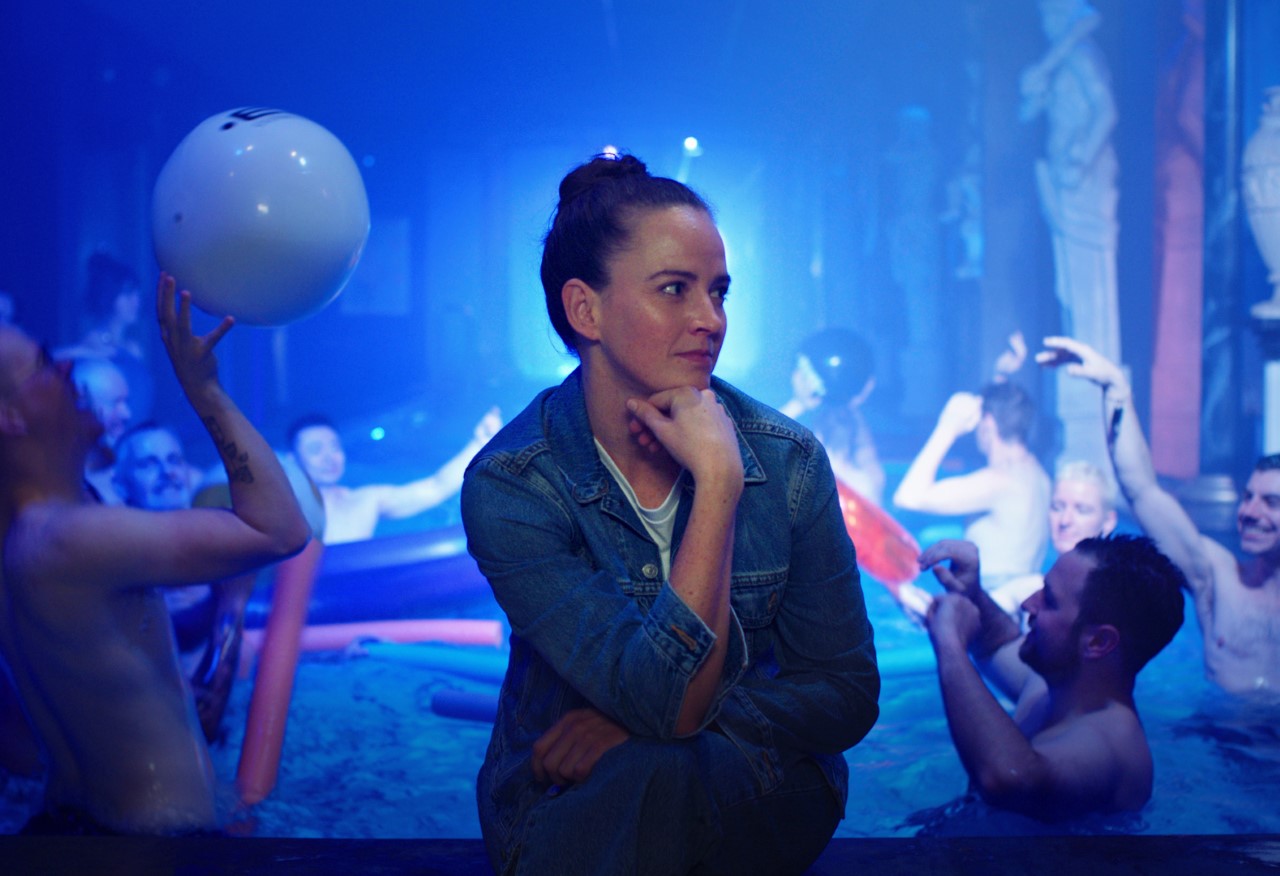
Written and presented by award-winning comedian and self-proclaimed “professional lesbian” Zoë Coombs Marr, Queerstralia lifts the lid on Australia’s persecution, religious damnation, and social rejection of homosexuality since 1727. It also shines a floodlight on the resilience, activism, celebration, and pride that has surrounded queer communities in their quest for acceptance and equality.
What follows is a deeply illuminating, often harrowing, examination of how Australia has treated its queer people over the past two centuries. And because it’s Zoë explaining this history, Queerstralia is also laugh-out-loud funny.
VicScreen spoke to Zoë about the genesis of the series and trying to squeeze the entire rainbow of Australia’s queer history into three hour-long episodes.
VicScreen: How did Queerstralia come into existence?
Zoë Coombs Marr: There's nothing particularly interesting about the story! The idea was pitched; we did an early development – and I've done a lot of different developments for TV and most things never go anywhere – but this was just one of those that did go somewhere. That is the most boring story, but I think that’s often the story of how television gets made.
VicScreen: It's a very broad spectrum of subject matter to cover – how did you find your collaborators for this project?
Zoë Coombs Marr: There were a lot of different researchers who contributed to the early development of this series. Some of whom are the experts that we interviewed in the show. There were a lot of different voices and lots of different people coming from lots of different perspectives.
It was really important for me to decentre myself as much as possible. It’s not a definitive history. It has to be approached in lots of different ways. And to do that, it needs to include a lot of different voices. Because [Queerstralia] is a story that a lot of people have ownership over.
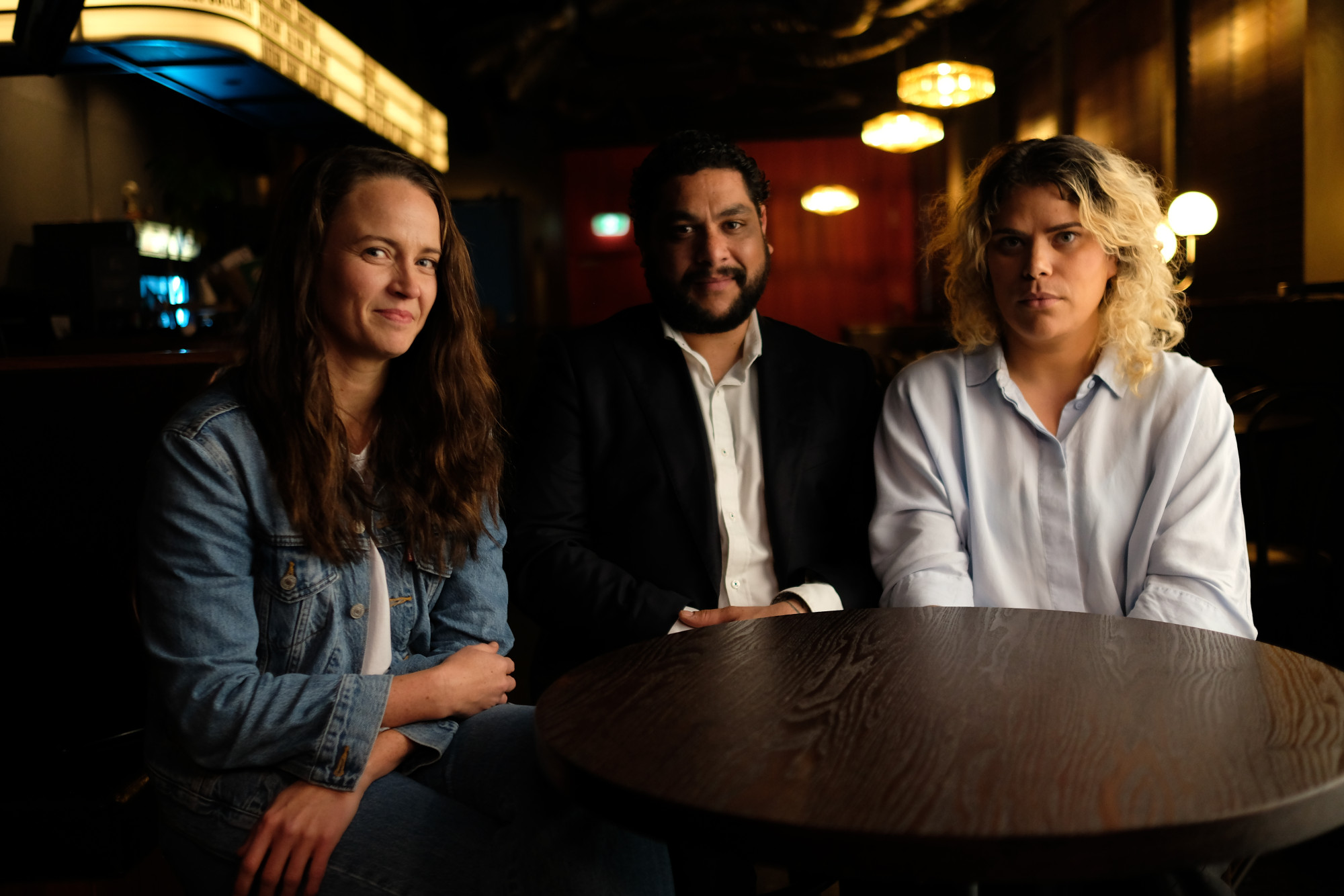
It's still television, it still needs to be entertaining and emotional, but it needed to be told in a way that was authentic. There's no point in me giving you some facts about something I've read; it would be inauthentic and unethical. But also boring to watch. So, it was a process of working out which people should tell which stories. Especially as we get out of the colonial era, and we start talking about people's lived experiences and memories.
My interview with Magda [Szubanski] is quite different to my one with Hannah [Gadsby]. And there's another one with Rhys Nicholson that appears later as well. There are some people who I'm friends with in the real world, and they contribute in a slightly different way.
We're talking about a history of not just events, but also social attitudes, and things that people have experienced in a way that's sometimes hard to articulate. So, the more people that you have articulating that in their own way, the closer you get to somewhat of a whole picture.
VicScreen: You tread the line of light and shade very deftly, weaving comedy throughout some very sad storylines. How did you manage this?
Zoë Coombs Marr: This is a question I get asked a lot. It doesn't feel like an unnatural way of telling a story to me. Humour goes hand in hand with the darkness. I feel like that is one of the main functions of humour – it gives us a way to talk about dark things.
It terms of finding the right balance, most of the time, it's just common sense, right? Jokes can get you out of a tight spot of darkness because you can't sit in that space for too long. My stuff is very fast paced, always. I don't like to sit in one spot for too long. It's a rollercoaster ride. But that's the only way I know how to tell a story.
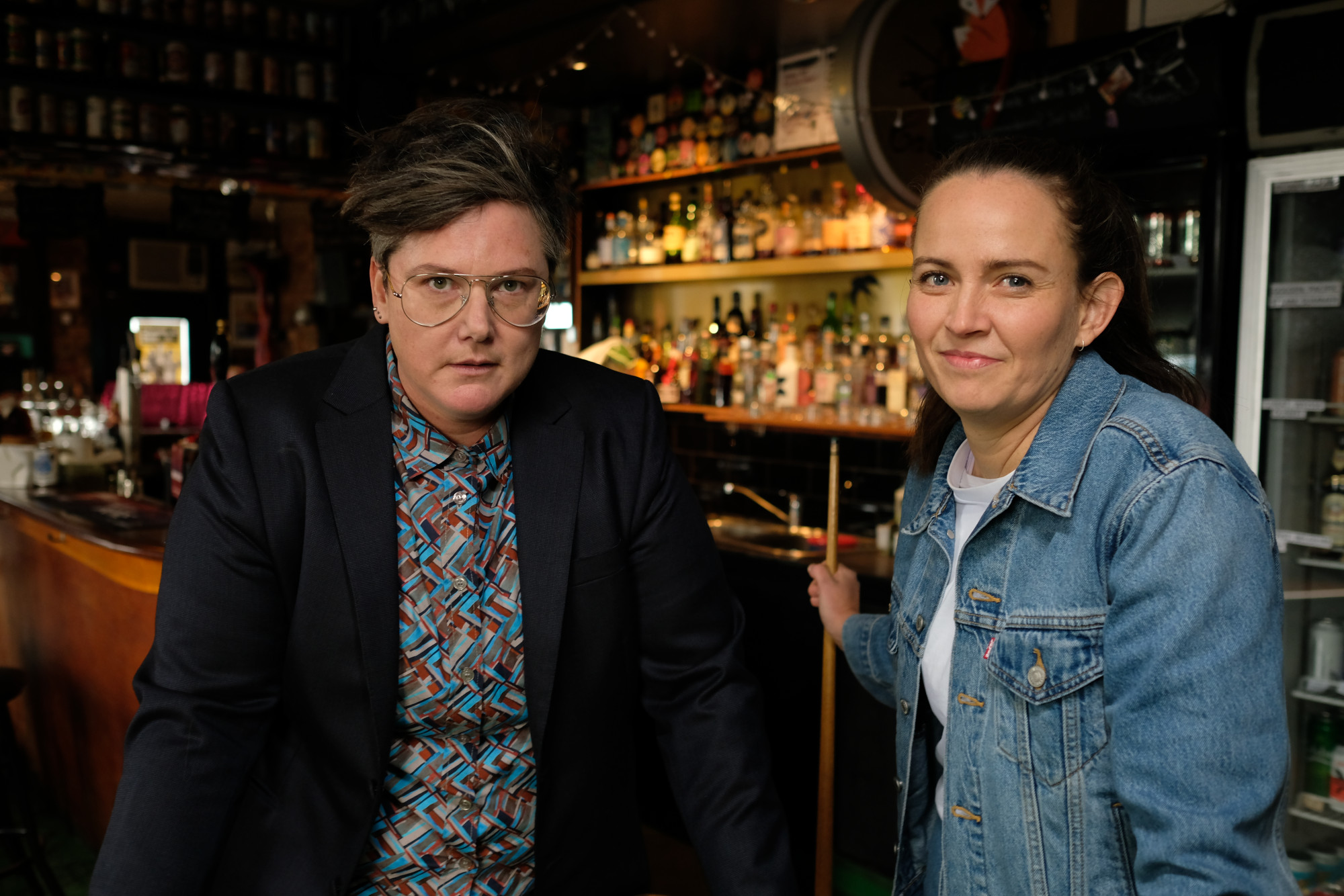
VicScreen: Tell us about some of the locations you shot at?
Zoë Coombs Marr: We're based in Victoria, so we did a lot of interviews in Melbourne. And this is a little easter egg actually; the majority of our interview locations were done in queer spaces. Our interviews with Dino Hodge and Den Altman were done at The Peel in Collingwood.
We shot our interviews with Julie Peters and Georgie Stone at what used to be the Glasshouse. So, the show is kind of queer in its DNA. We also went to Altona and shot with the former mayor, Tony Briffa. Tony’s the first out intersex mayor anywhere in the world.
One of the iconic Melbourne locations that we shot at was Julie Peters house. Julie Peters is an academic and a trans woman who has amassed a huge collection of trans archives with filed away news clippings about gender dating back to the 1940s.
VicScreen: We need archivists. So much LGBTQI+ plus history has been hidden. Why did you want to help uncover it?
Zoë Coombs Marr: It's about finding a lineage, like a family tree. It's about trying to find a whole picture when there's only been little bits and pieces isolated from each other. That's always been my aim with the doco…to find the connections between these isolated strands.
We queer people have been oppressed and persecuted a lot. And a big part of that is this idea that queerness is unnatural, and that we should resist it. That we're doing something bad and wrong and evil. But, through looking at these histories, you can really prove that we’ve existed forever.
There's a validation that comes from looking at queer histories, which completely undermines any argument that people have against the existence of queer and trans identities. You can point to these histories, and say we’ve always, always been here. It's not new. We're not the problem. Society has a problem with us.
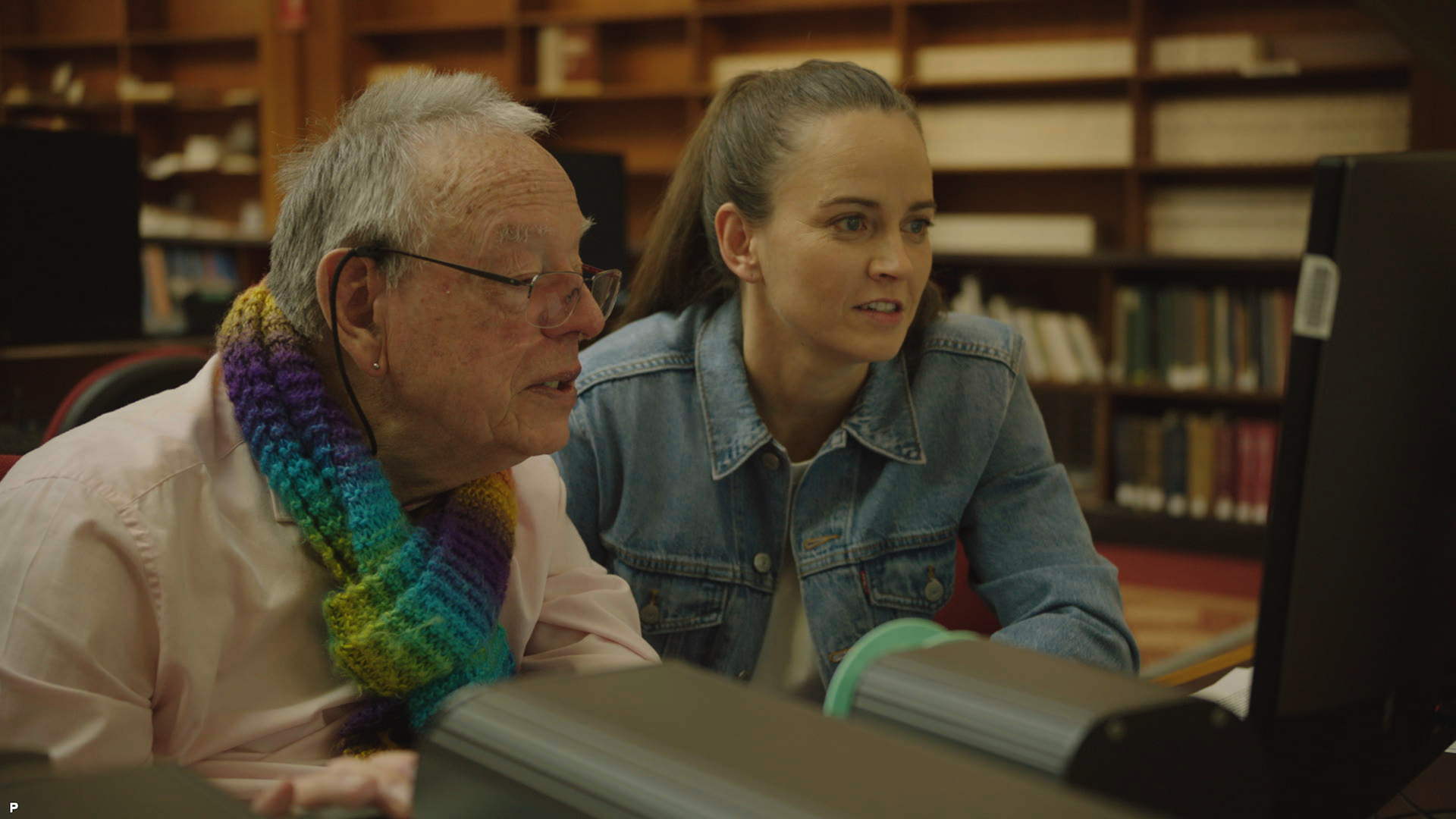 Peter De Waal AM and Zoë Coombs Marr
Peter De Waal AM and Zoë Coombs Marr
VicScreen: You can also point to the how society has accumulated these discriminatory ideas.
Zoë Coombs Marr: That’s right. Once you look at the history, it becomes glaringly obvious that this is an introduced thing; homophobia is a constructed social attitude.
You can point to these histories, and say we’ve always, always been here. It's not new. We're not the problem. Society has a problem with us.
VicScreen: How did you narrow down all these stories to squeeze them into three short hours of TV?
Zoë Coombs Marr: All the episodes are really different because they're dealing with different ideas. The law episode [episode one] is probably the most linear. Episode two, which deals with identity is very interview-based, and it's very much about people's lived experiences. And then Episode Three is much more recent. We're talking about the 80s. And we talk about the AIDS crisis. And how queer people became more visible and what that meant.
VicScreen: What has it meant to you personally to make and release this documentary-series during World Pride, no less?
Zoë Coombs Marr: I mean as a process, it has been an absolutely gut-wrenchingly harrowing, difficult, process! But also an incredible, joyous time. Making any piece of television is a wild beast. [Queerstralia] is such tricky, complex material and speaking in some ways on behalf of a very broad queer community is terrifying and really difficult. But it's also been a driving factor as well.
This is obviously something that is really personal for me. I've approached it in a really personal way. My family is in it. My queer family is in it. So, it's something that I'm incredibly invested in and have had the good fortune of having an incredible team as well. Actually, the majority of our team [in front of and behind the camera] have been queer people. So, everyone has absolutely worked their guts out on this. Because they're invested, you know; it’s a special project.
There’s probably an easier way of telling this story. But it's really important to try to tell the more difficult parts of what is already a difficult history. So to see it go out in the world is really great. I just hope that we're doing justice to the story that all these different people have an investment in. It’s been a privilege to make.
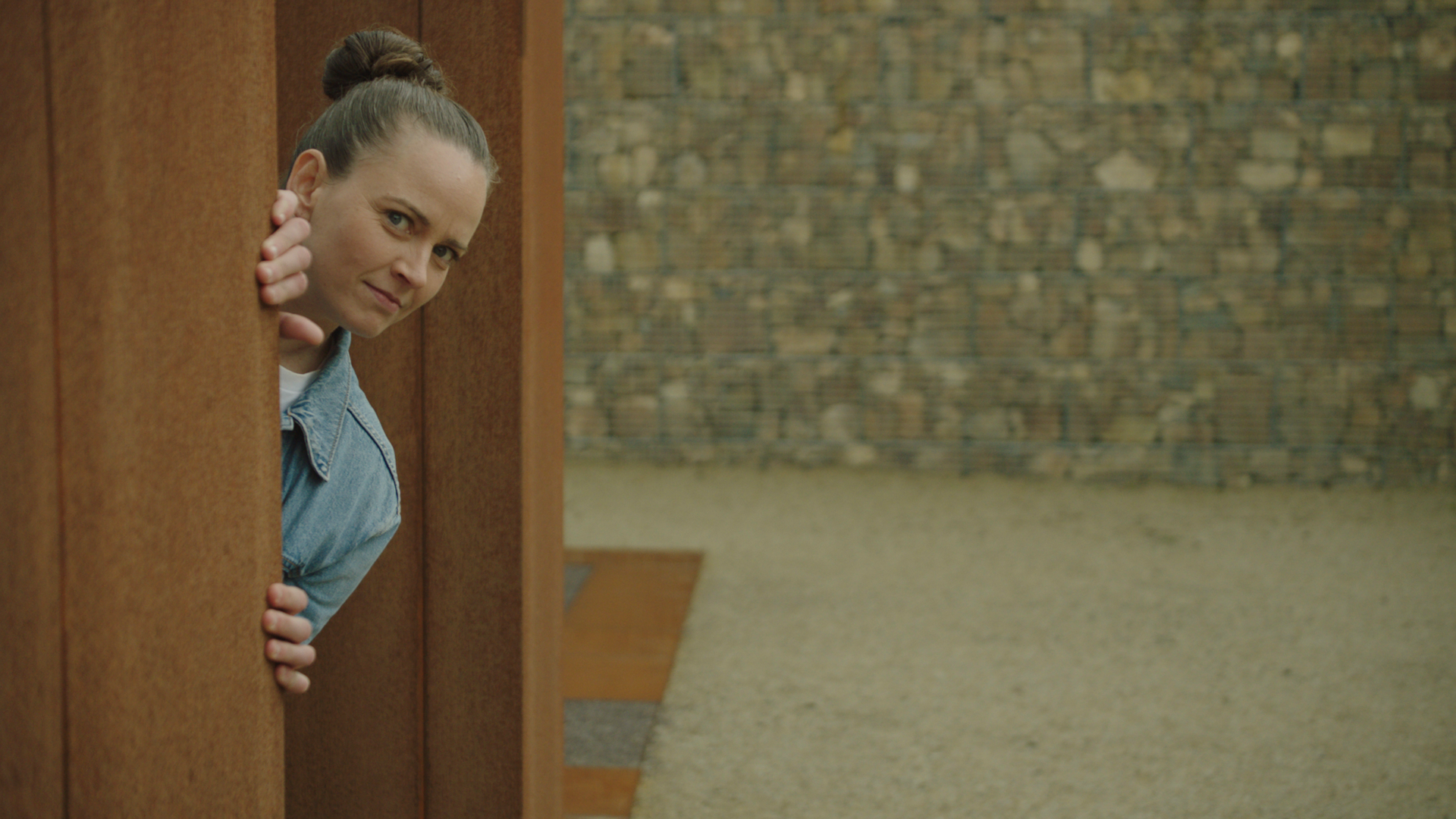 Zoë Coombs Marr on the set of Queerstralia at Cascades Female Factory
Zoë Coombs Marr on the set of Queerstralia at Cascades Female Factory
The season finale of Queerstralia airs tonight, Tuesday 14 March 9.00pm on ABC and iView. You can watch Episode 1 and 2 on ABC iView.